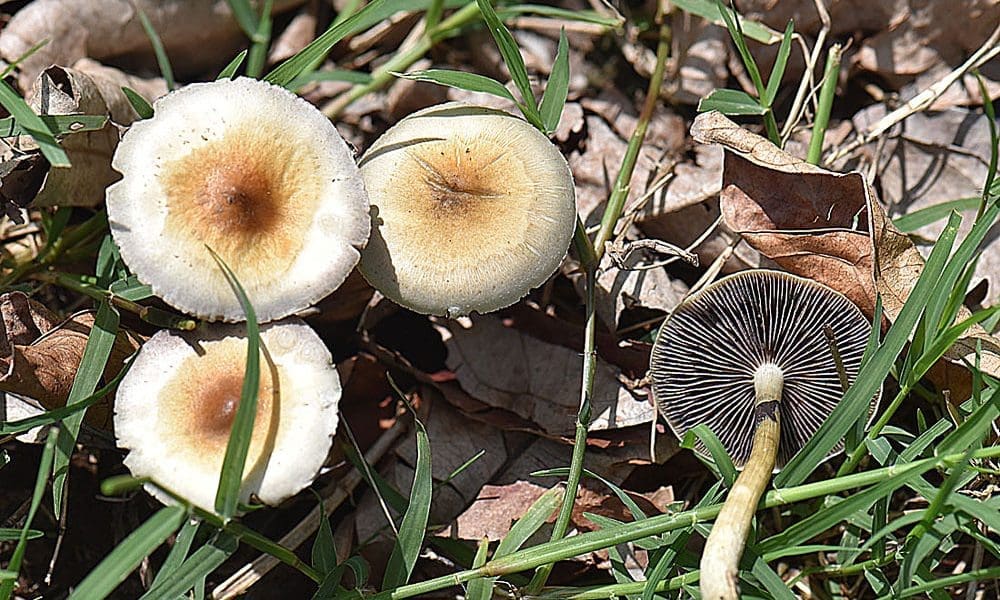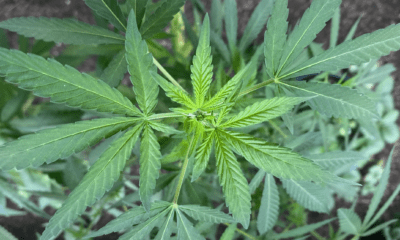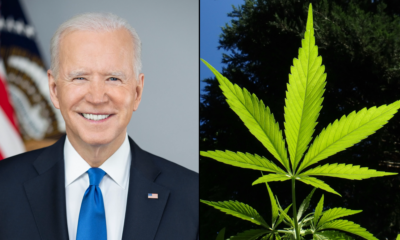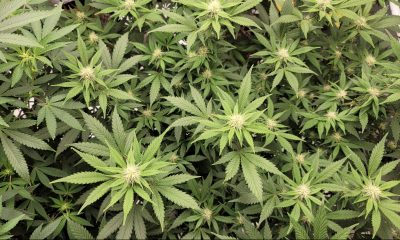Politics
House Committee Will Consider Protecting State Medical Psilocybin Laws From Federal Interference Under New Amendment

A pair of Democratic congressmen have filed an amendment to a large-scale spending bill that would prohibit the use of federal funds to interfere with state and local laws allowing the use and sale of psilocybin for medical purposes.
Reps. Robert Garcia (D-CA) and Earl Blumenauer (D-OR) are seeking to attach the psychedelics measure to appropriations legislation covering Commerce, Justice, Science, and Related Agencies (CJS). It will be up to the House Rules Committee to determine whether the amendment will be made in order for a floor vote.
The members separately introduced standalone legislation in September to prevent federal interference in any jurisdiction that legalizes the psychedelic.
The new CJS amendment, meanwhile, states that no appropriated funds under the spending bill “may be used to prevent any State, the District of Columbia, any territory, commonwealth or possession of the United States, or any unit of local government from implementing its own laws authorizing the use, distribution, sale, possession, research, or cultivation of medical psilocybin.”
That language is similar to an existing CJS rider that has been annually renewed each year since 2014 prohibiting the use of federal funds to interfere in state medical marijuana programs. Efforts to expand that protection to cover adult-use cannabis laws have passed the House on several occasions but have never been enacted into law.
“I just think that there’s an opportunity to have a more progressive worldview on legalization and on [preventing] harm to people that are, in many ways, receiving huge medicinal benefits or recreational benefits” from cannabis and psychedelics, Garcia told Marijuana Moment in a phone interview on Tuesday before the psilocybin amendment was publicly posted.
If the psychedelics appropriations measure is cleared for the floor and ultimately enacted, it would specifically focus on medical psilocybin laws, so its practical impact may be limited in the short-term given that no states have explicitly authorized it as a therapeutic in the way they have for marijuana, with qualifying conditions and doctor recommendations, for example.
Rather, the psychedelics laws that have been enacted in states like Colorado and Oregon are more open-ended, acknowledging the therapeutic potential of substances like psilocybin without necessarily requiring adults to jump through regulatory hoops to establish their patient status in order to obtain state-legal services. At the local level, psychedelics reform has principally focused on deprioritizing criminalization.
It remains to be seen whether the Rules Committee will be willing to let the psilocybin amendment advance to the floor once it schedules a meeting on the CJS bill. Under Republican control, the panel has blocked numerous marijuana and psychedelics measures throughout the appropriations process, including Garcia’s repeated attempts to secure reform to prevent drug testing of federal job applicants for marijuana.
Most recently, he’s sought to attach the employment protections to a spending bill covering Financial Services and General Government (FSGG), which is also the legislation that Rep. Eleanor Holmes Norton (D-DC) and Blumenauer are hoping to use to end the federal blockade preventing Washington, D.C. from legalizing marijuana sales.
The psilocybin amendment is a more novel proposal, however, and the Rules Committee has allowed a separate, GOP-led psychedelics measures to receive floor consideration as part of another appropriations bill that ultimately passed the full House.
One of those House-passed amendments would allow U.S. Department of Veterans Affairs (VA) doctors to issue medical cannabis recommendations to veterans, and the other would encourage research into the therapeutic potential of psychedelics like psilocybin and MDMA.
—
Marijuana Moment is tracking more than 1,000 cannabis, psychedelics and drug policy bills in state legislatures and Congress this year. Patreon supporters pledging at least $25/month get access to our interactive maps, charts and hearing calendar so they don’t miss any developments.
![]()
Learn more about our marijuana bill tracker and become a supporter on Patreon to get access.
—
The Senate Appropriations Committee also adopted a measure to its version of the MilCon/VA legislation that would similarly free up VA doctors to issue medical marijuana recommendations, increasing the chances of the reform making it into the final package to be signed into law.
A pair of psychedelics research measures, as well as an amendment on creating federal labeling requirements related to marijuana interactions with prescription drugs, were also approved by the House in September as part of a Department of Defense (DOD) spending bill.
A report attached to the spending legislation by the House Appropriations Committee separately includes a section noting that “VA has clarified that nothing in VA statutes or regulations specifically prohibits a veteran whose income is derived from state-legalized cannabis activities from obtaining a certificate of eligibility for VA home loan benefits.”
Over in the Senate, lawmakers passed defense legislation in July that contains provisions to bar intelligence agencies like the CIA and NSA from denying security clearances to applicants solely due to their past marijuana use. But other cannabis proposals, such as one from Sen. Brian Schatz (D-HI) to allowed medical marijuana use by veterans, did not advance as part of the National Defense Authorization Act (NDAA).
More than a dozen marijuana and psychedelics amendments to the House version of the NDAA were blocked by the Rules Committee in July. That includes a measure introduced by Garcia that would have prevented security clearance denials for federal workers over prior cannabis use.
However, in September the House Oversight and Accountability Committee passed a standalone bipartisan bill that would prevent the denial of federal employment or security clearances based on a candidate’s past marijuana use.
Connecticut Officials Double The State’s Marijuana Purchase Limit For Adults
Photo courtesy of Dick Culbert.
















